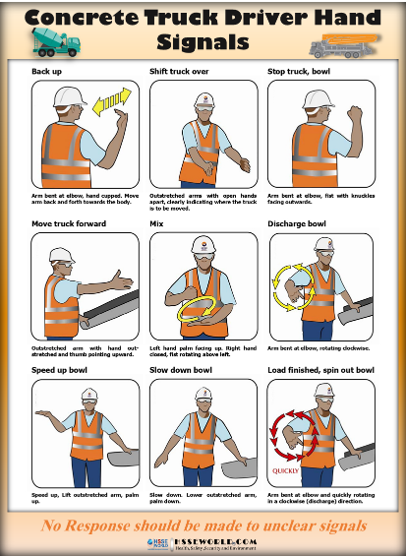Time management is critical in any profession, and the construction industry is no exception. Construction workers often face tight deadlines, complex projects, and competing tasks that require efficient allocation of time and resources. In this blog, we explore the importance of time management for construction workers and provide ten effective strategies to optimise productivity and meet project goals.

Effective Time Management for Construction Workers
Here are ten effective strategies that construction workers can use to optimise their time and productivity:
- Prioritise Tasks: Start by creating a list of tasks that need to be completed. Prioritise them based on importance and deadlines. Focus on high-priority tasks first to ensure critical work is completed on time.
- Set Clear Goals: Define specific, measurable, achievable, relevant, and time-bound (SMART) goals for each project or task. Having clear objectives helps you stay focused and motivated.
- Create a Schedule: Develop a daily or weekly schedule that outlines when and how each task will be completed. Be realistic about time estimates and include buffer time for unexpected delays.
- Use Technology: Embrace construction project management software and mobile apps that can help you track progress, communicate with team members, and schedule tasks efficiently. These tools can streamline processes and improve collaboration.
- Delegate Responsibilities: Don’t try to do everything alone. Delegate tasks to team members based on their skills and expertise. Effective delegation frees up your time for more critical responsibilities.
- Time Tracking: Monitor how much time you spend on each task. This data can help you identify areas where you can improve efficiency and make informed decisions about resource allocation.
- Minimise Distractions: Construction sites can be noisy and chaotic, making it a challenge to stay focused. Minimise distractions by creating a dedicated workspace and using noise-cancelling headphones when necessary.
- Break Tasks into Smaller Steps: Large construction projects can feel overwhelming. Break them down into smaller, manageable tasks to make them more approachable. This approach also allows for easier monitoring of progress.
- Regularly Review and Adjust: Periodically review your time management strategies and adjust them as needed. Learn from your experiences and continuously seek ways to improve your efficiency.
- Time for Training and Development: Allocate time for training and skill development. Investing in your team’s knowledge and expertise can lead to increased efficiency in the long run.
Also Read E-Book : Career Guide to the safety Profession
The Importance of Time Management Training for Construction Workers
Time management training is a critical element in the construction industry, offering a plethora of advantages that can significantly influence both individual workers and the overall success of construction projects. Here are several compelling reasons why investing in time management training for construction workers is crucial:
1. Skill Enhancement:
Time management training equips construction workers with the skills and techniques needed to optimise their productivity and efficiency. It provides them with tools to plan, organise, and execute tasks effectively, ensuring they make the most of their work hours. These enhanced skills enable workers to meet deadlines and excel in their roles.
2. Reduced Costs:
Completing construction projects on time is essential for cost control. Delays can lead to increased expenses in extended labour costs, equipment rentals, and other overhead expenses. Time management training helps workers stay on schedule, minimising costly delays and saving construction companies substantial amounts of money in the long run.
3. Improved Safety:
Safety is paramount on construction sites, and proper time management training emphasises the importance of adhering to safety protocols. When workers have the time to perform tasks safely and without rushing, accidents and injuries can be significantly reduced. Training instils a culture of safety consciousness, creating a more secure work environment for everyone involved.
4. Enhanced Teamwork:
Construction projects are typically collaborative efforts that require effective teamwork. Time management training not only focuses on individual productivity but also on how workers can synchronise their efforts with colleagues. When construction workers are trained in time management, they can work together more effectively, resulting in better communication, coordination, and, ultimately, improved project outcomes.
5. Career Advancement:
Time management skills are highly transferable and can benefit construction workers in various aspects of their careers. Whether they aspire to move into project management roles, supervisory positions, or even leadership roles within their organisations, strong time management skills are invaluable. Training in this area equips them with the capabilities to excel in these roles and advance their careers.
6. Adaptability:
In the ever-changing construction industry, adaptability is a key trait for success. Time management training not only helps workers plan their tasks but also teaches them how to adapt to changing project requirements and unexpected challenges. This adaptability makes them more resilient in the face of adversity, ensuring that projects can adjust to unforeseen circumstances without significant disruptions.
Conclusion
Effective time management is crucial for construction workers to meet project deadlines, allocate resources efficiently, maintain quality, ensure safety, reduce stress, and achieve overall success in their field. By implementing the ten strategies outlined in this blog, construction workers can enhance their time management skills and thrive in their demanding profession. Remember that effective time management is a skill that can be practised, so stay committed to continuous improvement, and you’ll see positive results in your construction projects and your career.
Also Read: Risk Associated with Inadequate Record-Keeping Practices for Contractor Managment



